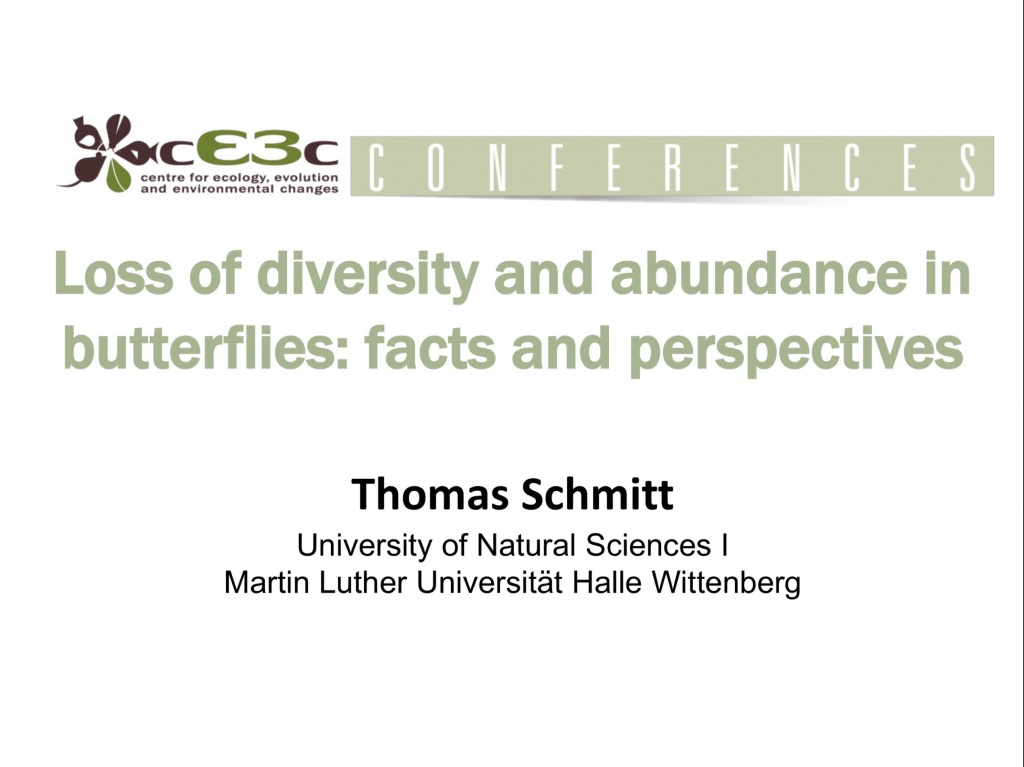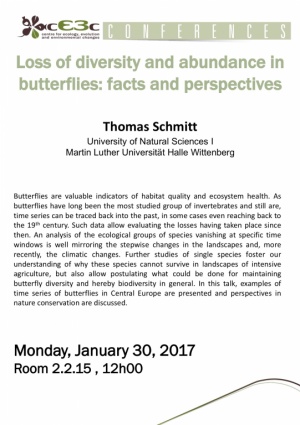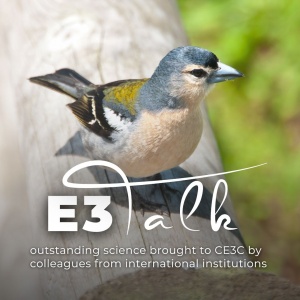Loss of diversity and abundance in butterflies: facts and perspectives
Thomas Schmitt
University of Natural Sciences | Martin Luther Universitat Halle Wittenberg
Butterflies are valuable indicators of habitat quality and ecosystem health. As butterflies have long been the most studied group of invertebrates and still are, time series can be traced back into the past, in some cases even reaching back to the 19 th century. Such data allow evaluating the losses having taken place since then. An analysis of the ecological groups of species vanishing at specific time windows is well mirroring the stepwise changes in the landscapes and, more recently, the climatic changes. Further studies of single species foster our understanding of why these species cannot survive in landscapes of intensive agriculture, but also allow postulating what could be done for maintaining butterfly diversity and hereby biodiversity in general. In this talk, examples of time series of butterflies in Central Europe are presented and perspectives in nature conservation are discussed.
Monday, January 30th, 2017
FCUL, Room 2.2.15 (Building C2), 12h00
About Thomas Schmitt:
Born 1968 in Rodalben (Pfalz).
1987 Abitur, best of year
1987-1989: civil service in an orphanate
1989-1996: Undergraduate studies in Biology and Romanistics in Saarbrücken and Lisbonne
1996-1999: PhD in Ecology in the Ecology group of Alfred Seitz, University of Mainz
2000-2001: Postdoc in the same group
2001-2003: Postdoc in the Biogeography group of Paul Müller, University of Trier
2003-2009: junior professor (W1) Molecular Biogeography, University of Trier
2009-2014: full professor (W2) Molecular Biogeography, University of Trier
since 2014: full professor (W3) Entomology, University Halle-Wittenberg and Director of Senckenberg German Entomological Institute in Müncheberg.
More than 120 ISI papers; more than 3000 ISI citations, H=32.







